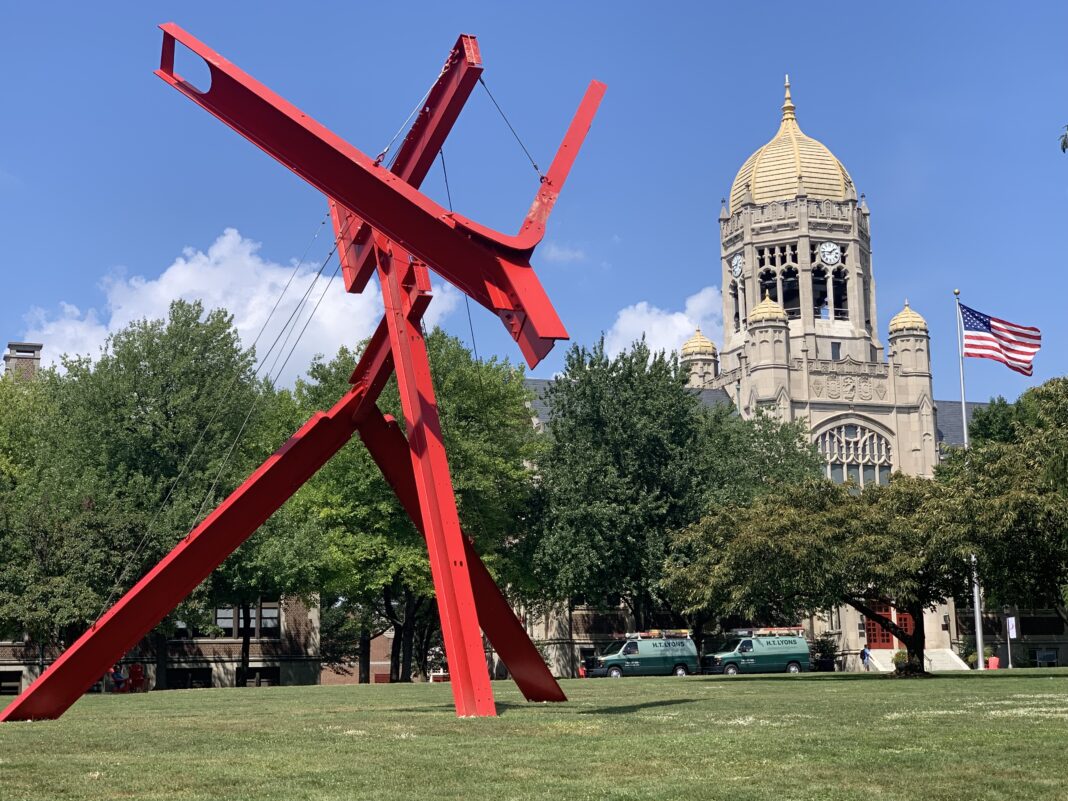Wow—it is so good to be back! Campus alive. Everywhere I look, I see old friendships rekindling and new friendships fostering. Classes are in-person. Residence halls are unmasked. Frisbees are being tossed on the quad. GQ is open past midnight. At last. For juniors, seniors, and super-seniors, the spirit on campus brings back memories of our pre-pandemic college experience, though the people we were then felt so distant from who we are now. For many sophomores and all our first-year students, the feeling on campus is new. Those who were here when it was just first-years on campus are familiar with the campus in their own way, but for many, the culture around them is still new.
Muhlenberg campus culture is fascinating. One of the first things you learn is you better watch how you act and what you say because everyone knows everyone. In many ways that pressure is positive—it keeps us on better behavior than at a larger school where you don’t have to pass that person you caught beef with on academic row the next day. Here, your reputation can make or break you. But Muhlenberg’s campus culture has overall always been friendly and close-knit in a way that many smaller schools aren’t. Upperclassmen are familiar with the holding doors tradition, and the holding doors-even-when-the-person-is-a-little-too-far-away- so-they-have-to-awkwardly-run-to-catch-the-door-behind-you tradition. I had a couple of doors dropped right in my face the first week. I continue to get strange reactions sometimes from underclassmen when I hold the door for them. Hint: it isn’t a form of flirting here.
Perhaps door-holding is an unimportant custom, but for me, it has always symbolized the acknowledgment of unity within the student body; that despite being busy overachievers, we can all go out of our way to pause a few seconds at a doorway to pass it to the next person. The loss of Muhlenberg customs like door-holding and holding each other accountable for our actions represent a shift in campus culture. Campus culture, after all, is shaped primarily via small, daily student interactions. So maybe door holding isn’t a big deal. But holding each other accountable is. And without knowing one another, it is harder to hold one another accountable. Campus culture means we decide what is acceptable behavior and what isn’t. Think of it as positive peer pressure— if you know you are expected to hold the door, to say hi to people even if you aren’t quite sure if you’ve met before as you pass them on campus, to be extra polite and grateful to our overworked dining hall staff—if the people around you lead by example, we all form a positive campus culture. Conversely, if we let our friends be rude and get away with it if we judge people before we’ve met them if we keep our circles small if we make people feel uncomfortable and unsafe at parties, that becomes our campus culture, too.
The current Muhlenberg student body is unspokenly divided between pre-world-falling-apart-before-our-eyes and post-world-falling-apart-before-our-eyes college students. Both groups are desperately vying for normalcy, but neither knows what that entails and both know that nothing will ever be the way it was pre-pandemic—nor should it. The pandemic brought to light the changes we want to make and need to make, and many of us are fueled with an intense passion to get out there and start working toward that better future. But we also all have suffered collective trauma at a critical point in our young lives and we are searching for a quick fix, an instant recovery to something relatively familiar, so we can feel right, and move on from the calamity that was the past year and a half. Underclassmen have so much to offer to this school, to breathe fresh air, new ideas, to start us on the changes that will progress this school to where we need to be. And upperclassmen, broken as we are, are ready to lead the way, to welcome everyone, whether it be for the first time in two years or the first time ever, to the home and the customs we have missed dearly for far too long.
Muhlenberg campus culture depends on us: the students. This semester we have the unique opportunity to build it up again, bridging the gap between pre-pandemic and post-pandemic students, and drawing on the vast variety of experiences that our student body has had while away from campus. We, the students, can choose to foster a healthier, kinder, safer, united campus culture that will help us all feel at home.






















